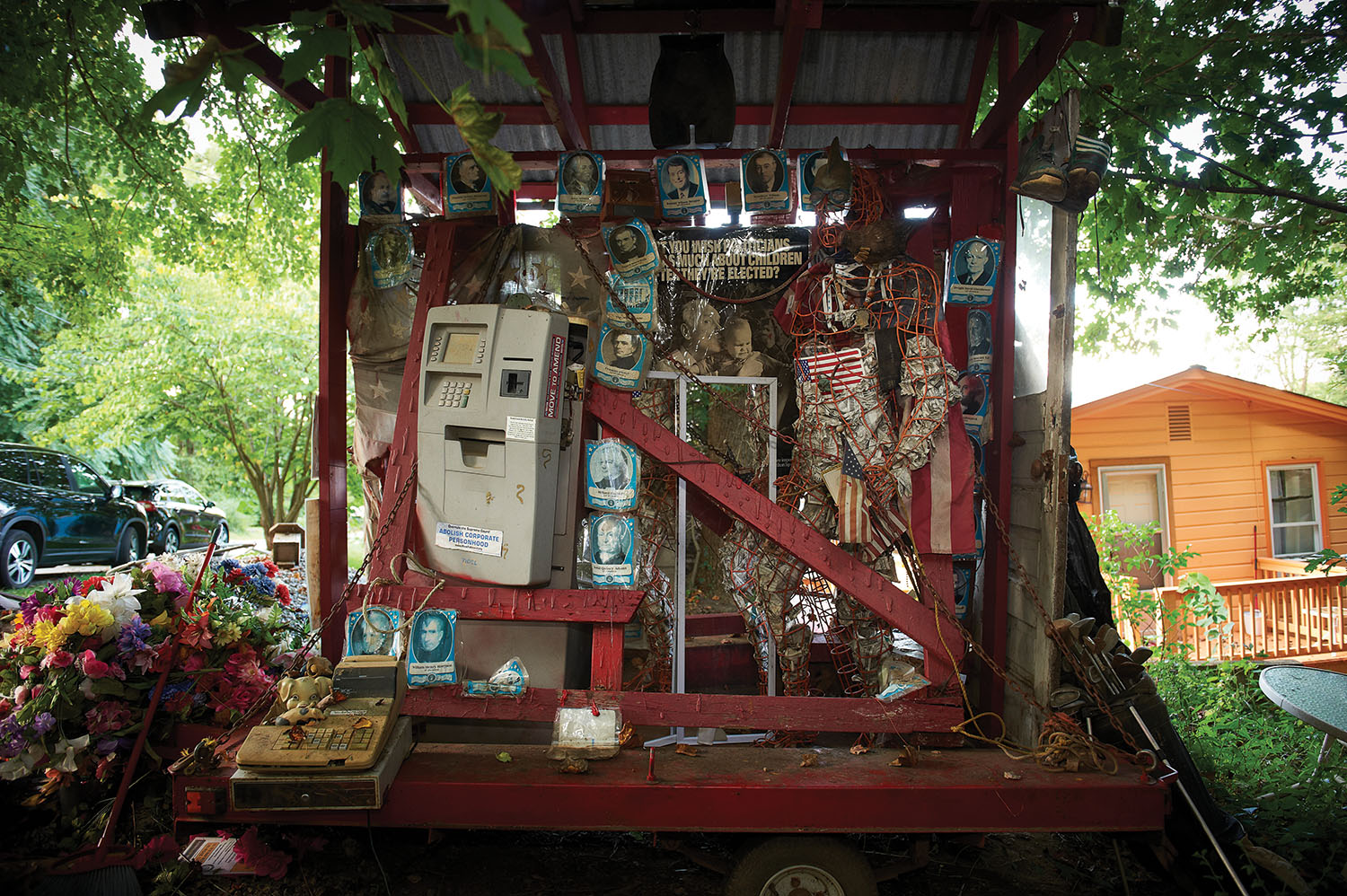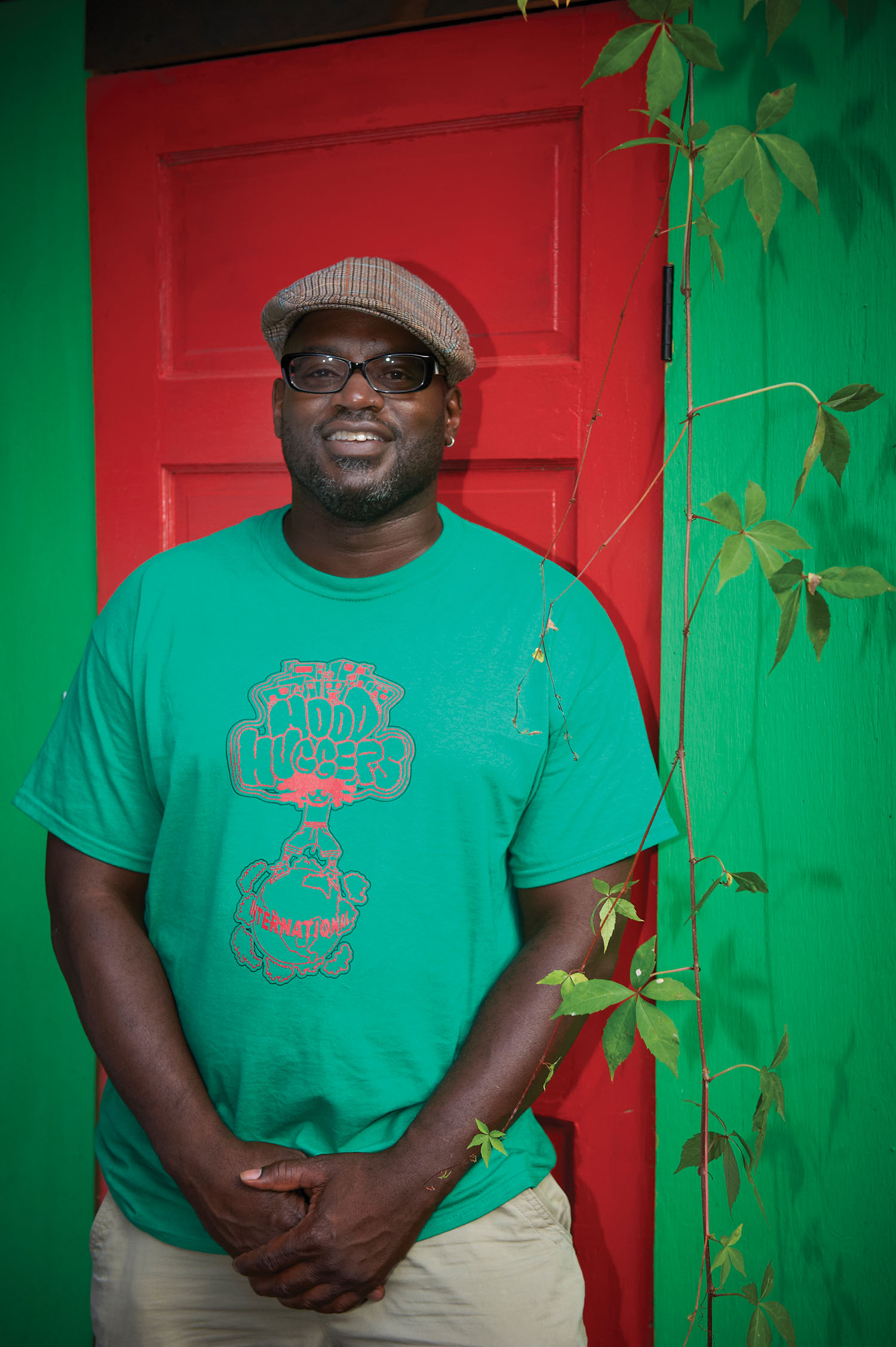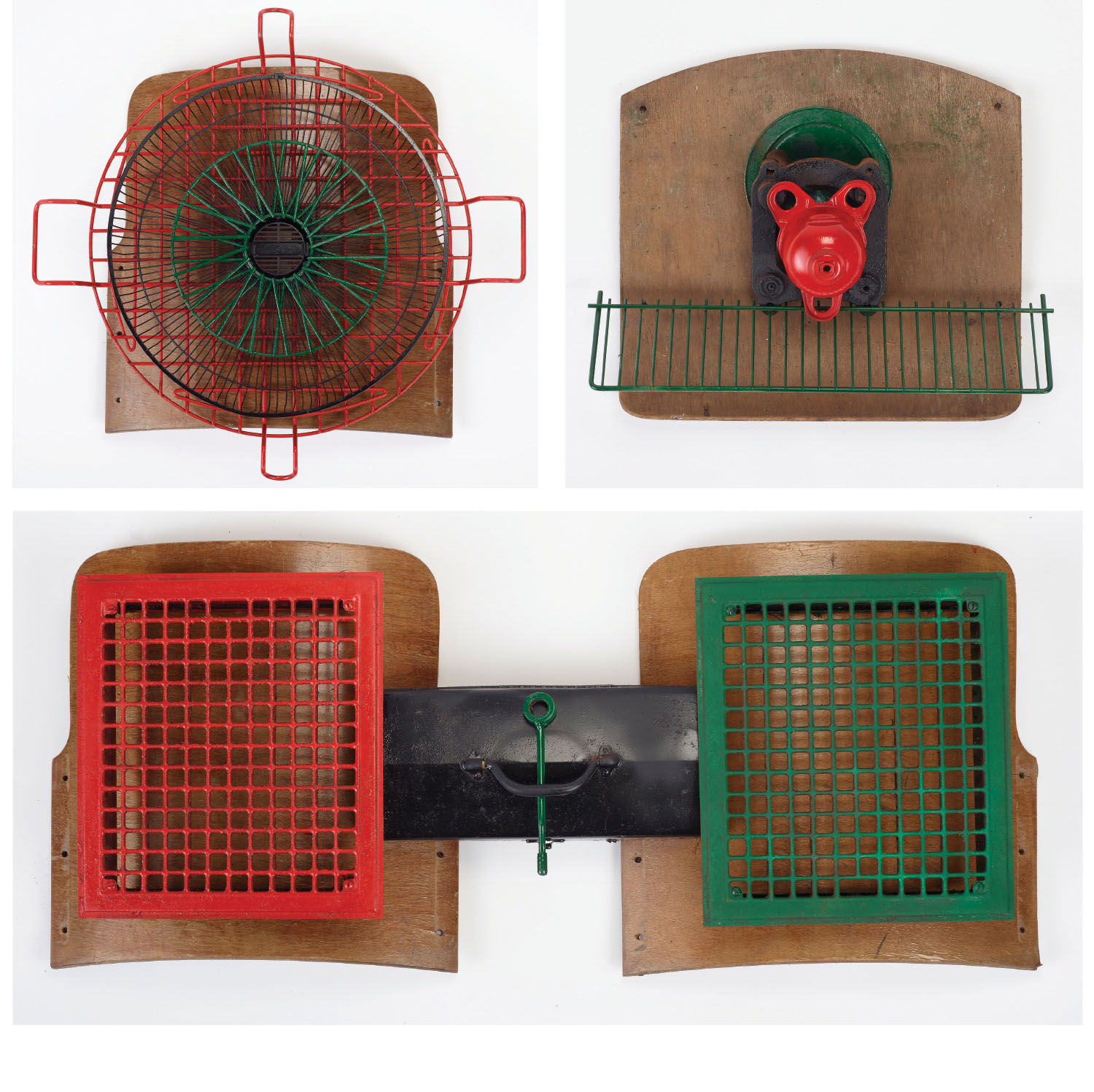
Years ago, DeWayne Barton totally redirected his life. “I wanted to represent love,” he says. He came back to his hometown, but he never went back on his personal pledge.
The switch alludes to his community activism: a long list of social-justice efforts bent on revitalizing Asheville, including co-founding the workforce-training program Green Opportunities, steering the Burton Street Community Association, and establishing Hood Huggers International, an organization that raises awareness of the area’s black residents and their cultural contributions.

But he’s also talking about his own art. For more than two decades, Barton, popularly known as B-Love, has created found-object sculptures. His materials — tattered American flags, plastic effigies of Jesus, toy soldiers, grubby exit signs — are culled from West Asheville’s streets and later curated into statuettes that speak about war or consumer culture or systematic racism. His 1998 piece “Rearview Mirror (Driving While Black)” juxtaposes a noose, rifle, and police baton with newspaper clippings from dramatic events of the ’60s Civil Rights era. The effect is sobering for the observer, cathartic for the maker. After all, notes Barton, art is about release. He’s a man who now emits happiness, but also commands a listener’s close attention,
“Art saved me,” he says. “It gave me an outlet and a platform. I want to give others the same chance to feel that.”
Opening at Flood Gallery Fine Art Center this month, Barton’s latest exhibit, Ancestors in the Garden, examines 250 years of African-American history with installations and wall hangings featuring black pathfinders. Named after the Motown legend himself, “Stevie Wonder” doesn’t just honor the beloved musician’s artistic impact. The piece combines scrap metal — collected over 15 years — with secondhand chairs sourced from a once-segregated local school, Livingston Street School, assembled to praise Wonder’s role in making Martin Luther King Jr. Day a national holiday.
Ancestors in the Garden also includes a larger, six-foot statue titled “Why Vote?” Barton says the installation is inspired by the 2000 presidential election, when ballots cast by 1.9 million black Americans allegedly went uncounted. Angered by the election results and musing on “what’s been done to African-Americans’ voting rights in the past,” Barton began throwing darts at a cardboard box. It has since expanded to include rusted chains, a wireframe man, headshots of former presidents, and more. The piece was displayed at the Smithsonian in 2005.
“There’s lots of money involved in elections — and blood, too,” says Barton.
As a whole, the exhibit draws creative impetus from Burton Street Community Peace Garden, a space Barton and his wife Safi Mahaba created in 2003, two years after Barton returned to the area. The garden, a response to the War on Drugs and the start of the U.S. invasion of Iraq, “came out of us wanting to create a place that would absorb trauma, where people could go make art and put their hands in the dirt,” he says.
In that sense, the mixed-media pieces are undeniably personal. Though they narrate a huge history — a history in which Harriet Tubman follows the drinking gourd and Malcolm X reprimands America’s whitewashed bureaucracy — the narrative remains close to home.

Photos by Steve Mann
DeWayne Barton, Flood Gallery Fine Art Center (850 Blue Ridge Road, Black Mountain, 828-273-3332, floodgallery.org). The artist’s latest exhibit, Ancestors in the Garden, opens Saturday, Oct. 27 and runs through Sunday, Dec. 30. For more information, contact Hood Huggers International at hoodhuggers.com.
Thank you for all you do for our Burton st. community and our young people in the community. Thank you for caring and giving back into the next generation.